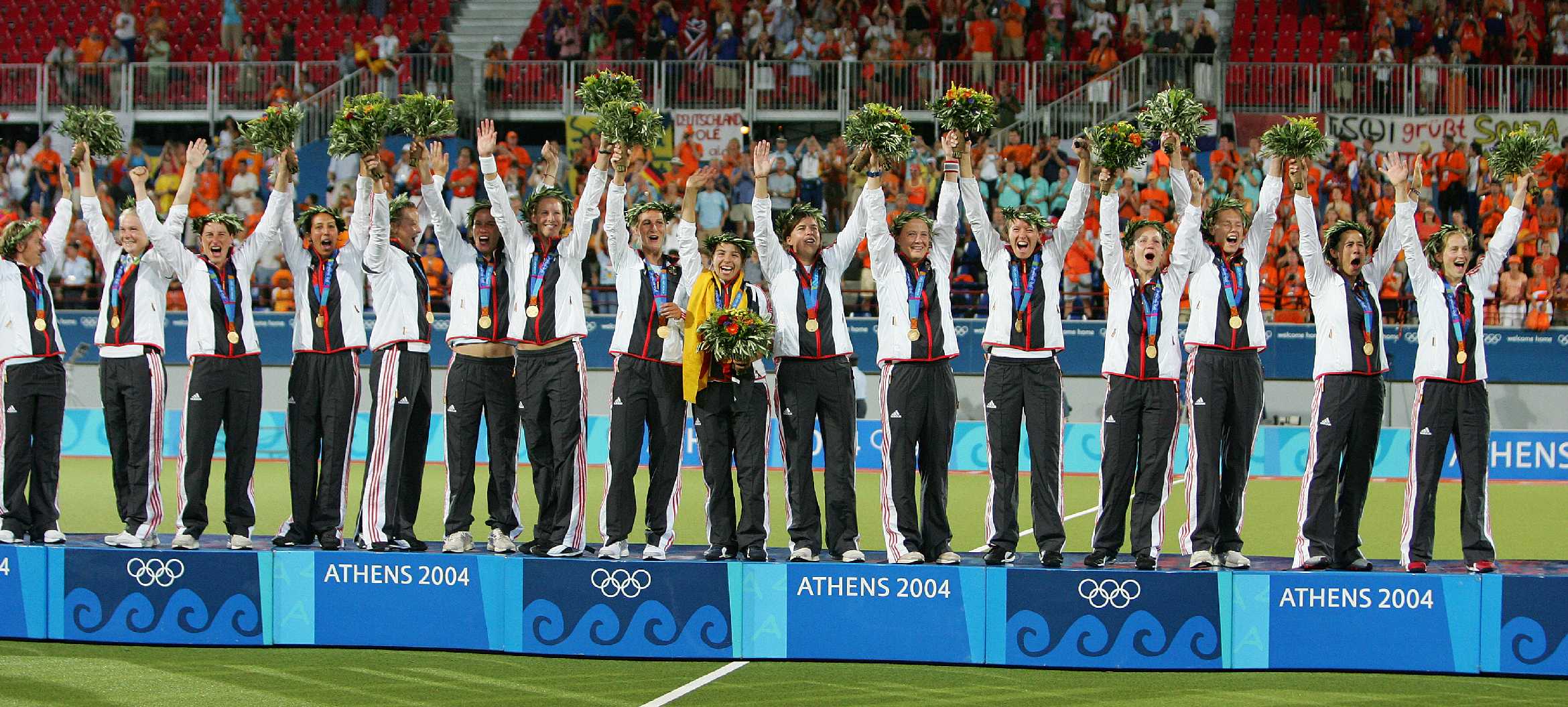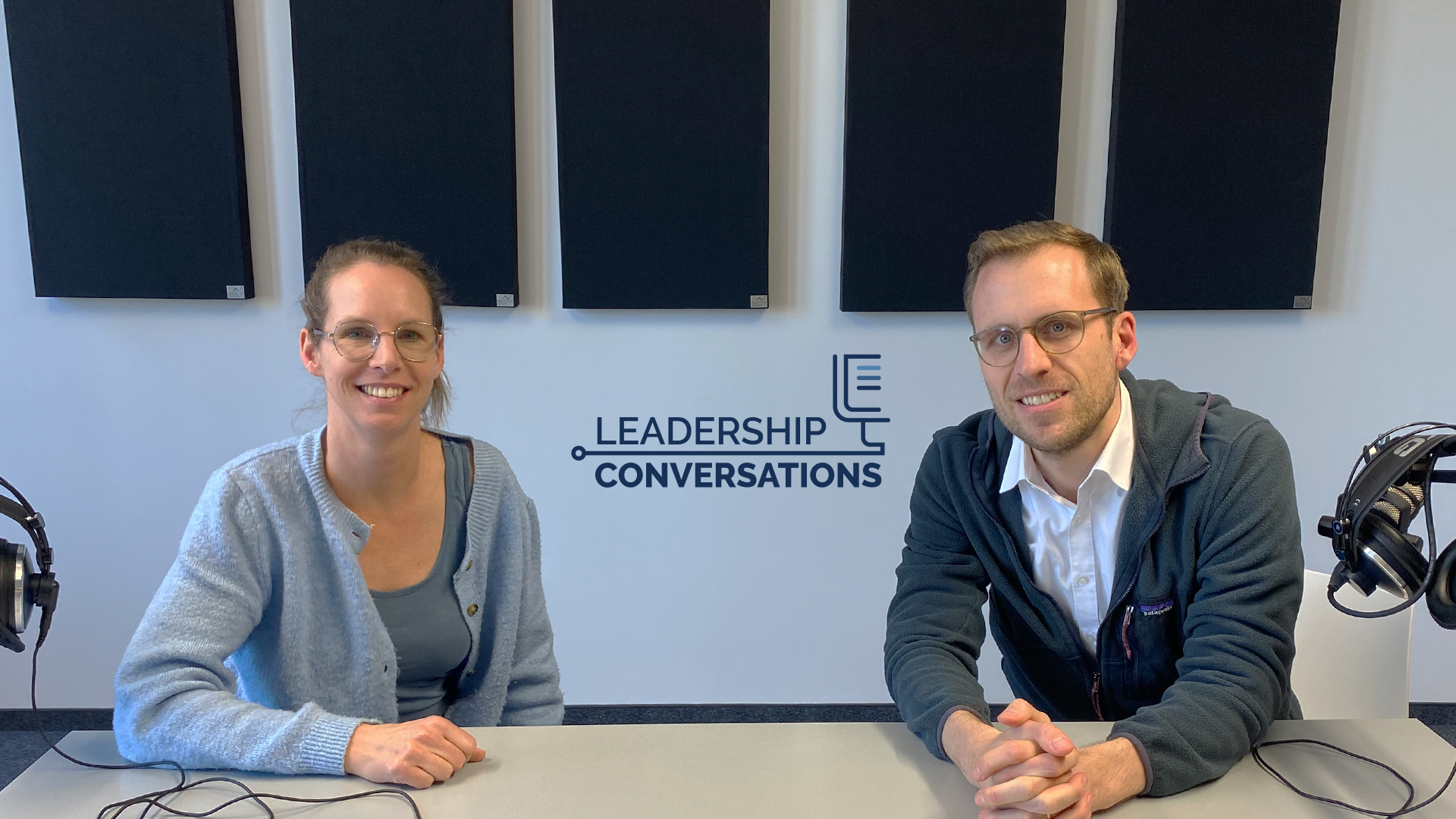Leadership Conversations Podcast: Leading in sports with Fanny Rinne
A new podcast episode is now available! This episode explores leadership in sports. Our CEO, Oliver Brümmer, speaks with Fanny Rinne, a former hockey player and Olympic champion with extensive experience in leadership, using her time as a captain in the national league as an example. Rinne shares her career path, draws parallels between business and sports, reveals why a good team is the most important component and emphasizes the importance of a strong mental attitude beyond just performance.
Fanny Rinne has been playing hockey since she was six years old. She immediately felt a connection to the sport and never wished to stop. According to her, this has a lot to do with the social component, such as the support of her trainer and team. She continued to pursue her passion for hockey while attending school and later while studying. At the age of 16, she played in the junior national team and two years later in the women’s national team. For 14 years, she played at the highest international level, attending the Olympic Games four times, playing in 341 international matches, and winning the Olympics in Athens with her team in 2004.
Rinne began her leadership journey at an early age as the captain of the U16 national team. She gained valuable experience in communication and strategy. When asked about the most significant moment in her career, she responded, „That’s a tricky question. There were many moments that changed and motivated me, that propelled me forward and made me reflect. Most likely, the most important moments were the defeats and setbacks. Also, during the period between the ages of 28 and 30, I questioned whether I should continue or stop. This phase taught me a lot about myself.“
When reflecting on her Olympia win, one term that stands out is „team spirit.“ Fanny always knew that her team was special, and this was evident at the European Championship in Barcelona a year before their win the Olympics in Athens. Her trainer at the time, Markus Weise, motivated the team by telling them that if they wanted to win, they had to start acting like winners. The team had experienced many defeats and frustrations, but they persevered. They spent a lot of time together and were committed to changing their mindsets. The following year was filled with ups and downs, but they managed to reach the semifinals as underdogs and ultimately won the final. The semifinals were particularly important because winning meant earning a medal, while losing could be a psychological obstacle to playing for third place. In retrospect, Fanny Rinne attributes much of her leadership skills to her training. She learned to assess individuals qualities and how to utilize them effectively in the field, to exercise critical thinking, to anticipate future challenges, and to embrace innovation. Rinne believes that leadership is not just about providing instructions and guidelines, but also about understanding the team’s needs and adapting to different situations.

Throughout the Olympics, one thing that stood out was the athletes ability to maintain mental focus despite the ups and downs of competition. For example, in the final match, the team played exceptionally well and demonstrated strong mental fortitude, even when facing a difficult situation against the favored opponent. The team engaged in productive discussions during breaks, laying all their cards on the table and even communicating without their coach. This strong dynamic within the team undoubtedly contributed to their success. The team believed that luck was on their side, which created a positive spirit within their hockey team. They acknowledged that some teams were more dominant in hockey, but they could not match their mental state and spirit. They uplifted each other, and it did not matter who scored the point or who said what. Looking back, the team’s dynamic was unique. This experience brought them even closer, and to this day, the team still meets with their families. This year marks the 20th anniversary of their win. Rinne describes the feeling of winning as an extreme sense of luck and elation that lasted for a year.
Today, Rinne helps other athletes balance their studies or jobs with their athletic careers. She believes that everyone has an individual story, and she cannot simply rely on her own experiences. “Every person, every wish, and every need is different.” However, her experience helps her understand what athletes are going through. Soft skills and mindset are taught well in the sports world, where athletes must cope with criticism and be organized. These are essential skills for the work world as well. Most athletes can handle heavy workloads and maintain high levels of focus, making them highly capable. Rinne believes that many aspects of sports can be applied to managing commercial enterprises and organizations, including decision-making skills. “I think that inspiration can be drawn from sports or team sports under strong leadership.” The main difference between a team coach and a CEO or company head is that the coach cannot physically score the goal on the pitch. On the other hand, a manager in a company can perform tasks themselves. Remember that lending a hand is also a form of empowerment. It is important to avoid saying „I have to empower my employees“ while simultaneously doing everything yourself.


